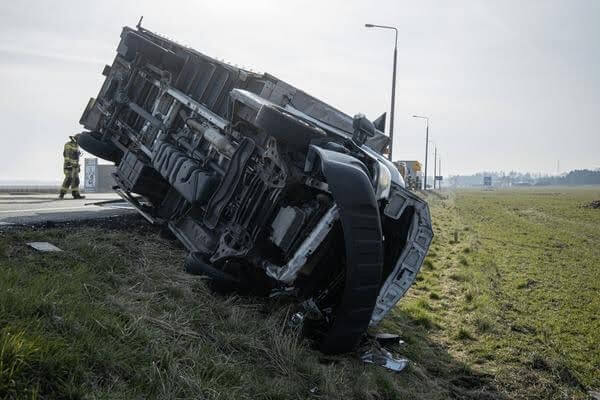As a growing city with several major highways and a steady flow of commercial traffic, Knoxville sees its fair share of serious truck accidents, making it especially important to know how local authorities and courts handle these cases.
If you’re injured in a truck crash in Knoxville, local law enforcement has clear, strict protocols, and you need to understand them because what you do in the minutes and days after that accident can make or break your entire case.
But, to be honest, between the legal requirements, the insurance battles, and the physical toll, it’s easy to feel overwhelmed. However, if you act quickly, protect your health, gather the right documentation, and work with the best Knoxville truck accident attorney, you’ll give yourself the best chance at recovering.
Here’s a breakdown of what to do if you’re injured in a truck accident in Knoxville:
Protect Yourself and Follow Tennessee Law
In Tennessee, you’re legally required to report any traffic crash that involves injury, death, or even just property damage over $50. That means practically any crash, even a fender bender, qualifies. If someone’s injured, you don’t have a choice; the law mandates that you call 911 immediately.
Knoxville Police Department (KPD) officers will respond to crashes that involve:
- Injury, death, or someone trapped inside a vehicle
- A suspected drunk, high, or otherwise impaired driver
- An uninsured or unlicensed driver
- A disabled vehicle blocking the road
- A disruptive or combative driver or passenger
- Hazardous materials
Evidence Collection
Once you’re out of immediate danger, your focus should shift to two things: your health and your future case.
If it’s safe, use your phone to document everything. Don’t rely on the police to get every detail. Officers do their best, but they may miss something or someone, especially in chaotic scenes.
Things you should capture include:
- Photos of all vehicles involved, from multiple angles
- The name, license plate, and insurance of the truck driver
- Company name and any truck ID numbers printed on the cab or trailer
- Names and contact info of any eyewitnesses (don’t assume police will follow up with everyone)
If you’re able to give a statement to police, keep it factual and brief. Don’t speculate, don’t apologize, and definitely don’t admit fault.
Get Medically Checked Out
If you leave the scene without getting checked out, you risk both your health and your injury claim.
A documented medical exam creates a clear link between your injuries and the crash, which is something insurance companies will absolutely look for when you file a claim. Delaying treatment gives them a reason to argue that your injuries came from somewhere else.
File Your Report with the Tennessee Department of Safety
There’s a separate requirement under T.C.A. 55-10-107: you must file a personal accident report with the Department of Safety if the crash involved any injury, any death, or more than $1,500 in property damage. If the crash caused over $400 in damage to city or state property, the rule applies too.
This requirement is in addition to any police report. You can’t assume the officer does it for you. Failing to submit this report within 20 days will result in your driver’s license and vehicle registration being suspended. The form is called the Owner/Driver Report, and you can find it online or in person at KPD headquarters.
Get Legal Protection Immediately
In a truck accident case, legal protection is absolutely necessary. A qualified personal injury attorney will immediately step in to protect your rights, manage communications, and preserve critical evidence that might otherwise be lost.
For example, trucking companies are only legally required to keep certain data (like driving logs and vehicle maintenance records) for a limited time. If you don’t act quickly, those records could disappear before they can help your case.
If your vehicle was totaled, if you suffered physical injury, or if you’re getting the runaround from insurance companies, having an attorney can shift the balance. Your legal team will deal with:
- The trucking company’s insurer and adjusters
- Collecting and preserving vital evidence (like dashcam footage, cargo records, driver logs, black box data)
- Identifying all possible parties who may be liable (such as the driver, trucking company, parts manufacturers, or third-party contractors)
A skilled attorney also helps ensure that your medical costs, future treatments, lost wages, property losses, and pain and suffering are properly calculated and pursued.
Without legal representation, you’re vulnerable to lowball settlement offers or having your claim dismissed altogether.




